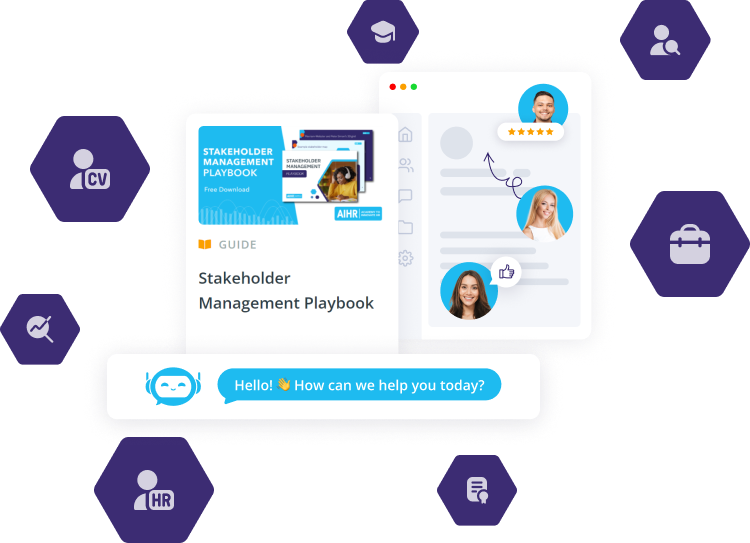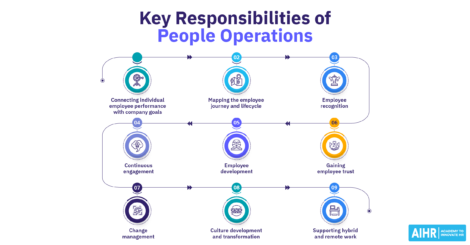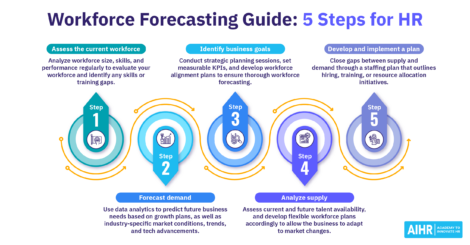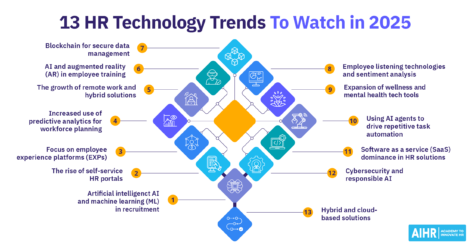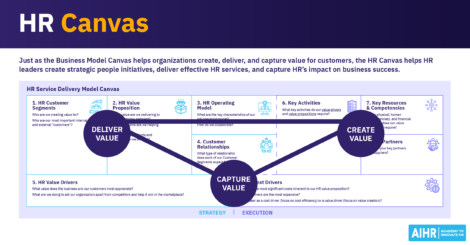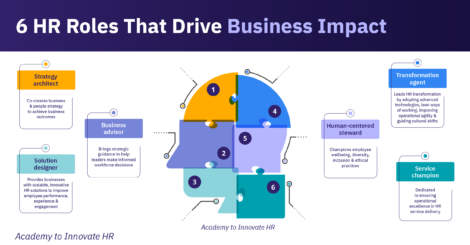HR Business Partner Job Description: What Does an HRBP Do?
Job descriptions are a lot like the brief story summaries on the back of a book: you don’t actually know what it will be like until you read the book or work at the company. Just imagine how much time we’d save if a job description were an accurate depiction of the actual job.
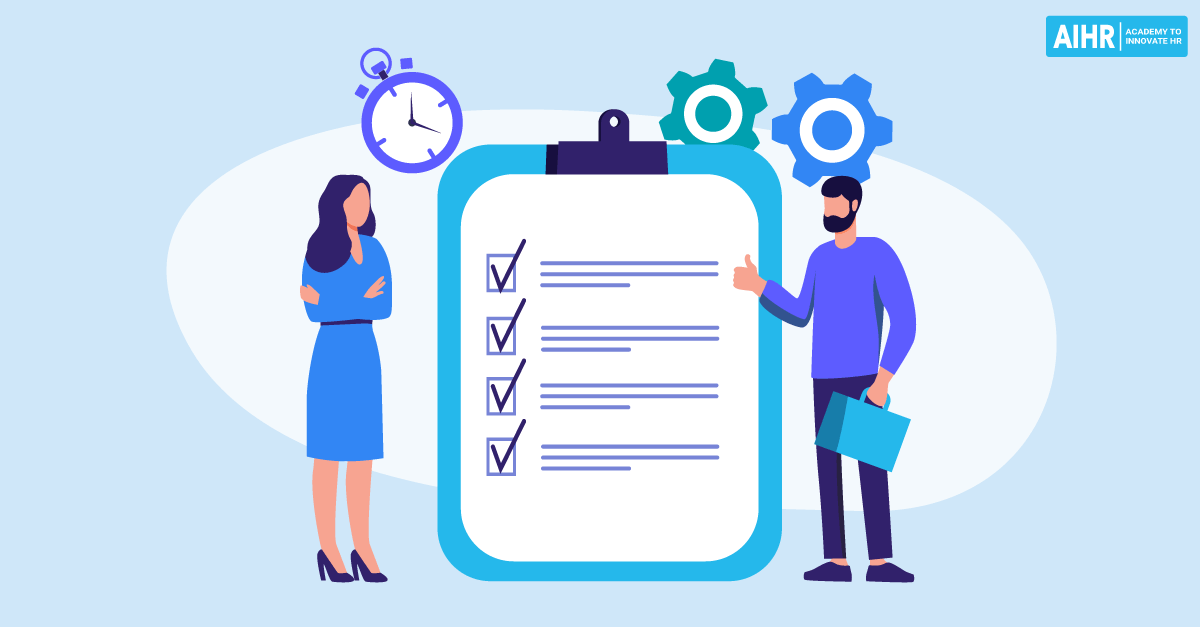
An HR Business Partner (HRBP) job description differs from one company to another, depending on factors like the role’s seniority level, the industry, and company size.
There are, however, some commonly required responsibilities, competencies, and qualifications this article will discuss to help you better understand what a typical HRBP role entails.
Contents
What is an HR Business Partner?
A sample HRBP job description
HRBP skills and qualifications
HR business partner salary
A day in the life of an HRBP
HR Business Partner job description PDF
HR Generalist vs. HR Business Partner
FAQ
What is an HR Business Partner?
An HRBP plays an essential role in creating a strategic liaison between HR and the business side of a company. HRBPs have a deep understanding of the business and know how to help the organization achieve its goals. They primarily work with the company’s leaders and senior (line) managers to ensure HR activities align with and support their needs.
HRBPs have various responsibilities in a company. Gartner identified four roles that demonstrate the versatility of the HRBP role:
- Operations manager: Monitors and measures existing procedures and policies.
- Emergency responder: Offers immediate solutions to acute emergencies.
- Strategic partner: Creates and implements company-wide strategies to tackle significant challenges.
- Employee mediator: Provides solutions for issues individual employees have.
The HRBP role is, however, constantly evolving and now comes with new expectations, including:
- Being a strategic advisor to senior leaders
- Coaching managers on effective leadership practices
- Ensuring compliance with HR regulations
- Facilitating performance management processes
- Managing employee relations
- Supporting organizational change initiatives.
A sample HRBP job description
Job overview
The HRBP helps align the organization’s people and business strategies. They are not only a people champion and an administrative expert but also a strategic partner and change agent for the business.
Together with the company’s line managers, HRBPs set priorities, drive value, and deliver business results. Depending on the size of the organization, they can be responsible for a few hundred to over a thousand employees.
Responsibilities of an HRBP
The exact responsibilities of an HRBP vary depending on factors like the industry, company size, strategic objectives, and the maturity of their HR organization. However, several responsibilities remain the same for all future-oriented HRBPs:
1. Strategic planning
A good HRBP can help their organization become future-ready by focusing on the existing workforce and preparing them for the future. Areas they need to work on include:
- Reskilling and upskilling: Identify training needs and assist the L&D function in aligning training programs with business objectives
- Strategic workforce planning: Ensure the company’s workforce has the right size, shape, cost, and agility for the future
- Succession planning: Select and develop key talent to ensure there are talents to fill critical roles.
2. Coaching and consulting leadership about HR matters
An HRBP should clearly understand how current and future challenges affect the people in their organization. This understanding allows them to give key stakeholders practical advice and coaching. However, the HRBP only acts as an advisor and consultant and is does not takes care of everything. Their job is to equip and enable leadership to handle (most) people matters in the organization.
Here are some examples of the responsibilities you might find in an HRBP job description:
- Conduct weekly or bi-monthly meetings with business leaders and provide HR advice where necessary
- Be up-to-date on employment laws and regulations, as well as other legal requirements regarding people management, to help ensure compliance
- Provide guidance on the creation and implementation of HR processes and policies.
3. Building a competitive organization
An HRBP helps their organization win clients and acquire and retain the best talent. They play an important role in making sure their business can strategize, train, and adapt to develop the best product. As such, they may also have the following responsibilities:
- Conduct day-to-day performance management guidance for line managers e.g., mentoring, career planning, coaching, etc.)
- Help line managers deal with organizational, people, and change-related issues
- Optimize organizational design to increase productivity and improve business performance.
These HR professionals are also crucial in ensuring the business can attract and retain the best talent. They might need to:
- Collaborate with other members of the People Team on implementing innovative and inclusive recruitment strategies
- Develop or assist in creating a future-proof compensation and benefits strategy
- Implement reward and recognition interventions to increase bottom-line results and employee engagement.
4. Being a company culture and employee experience champion
Helping build and maintain a strong organizational culture, as well as continuously improving the employee experience, are core responsibilities of future-ready HRBPs. Companies often require the HRBP to:
- Give advice and suggestions for culture-related initiatives, such as cultural transformation.
- Implement HRM interventions on employee wellness, Diversity, Equity, Inclusion and Belonging, or talent management.
- Work with management and personnel to solve conflicts and help facilitate positive employee relations, maintain a good working environment, build morale, and minimize unwanted turnover.
Keep in mind that responsibilities are rarely ever the same across all HRBP levels. A senior HRBP (who could be the VP of HR or a senior HR manager) usually has a more strategic role and leads the business conversation. As such, they focus more on strategic planning or coaching and consulting leadership about HR matters.
Meanwhile, a mid-level HRBP (also known as a junior HR manager) contributes to the business conversation. This means the majority of their responsibilities involve assisting the senior HRBP in their coaching duties, helping line managers deal with people-related issues, or participating in the process of developing HR strategy.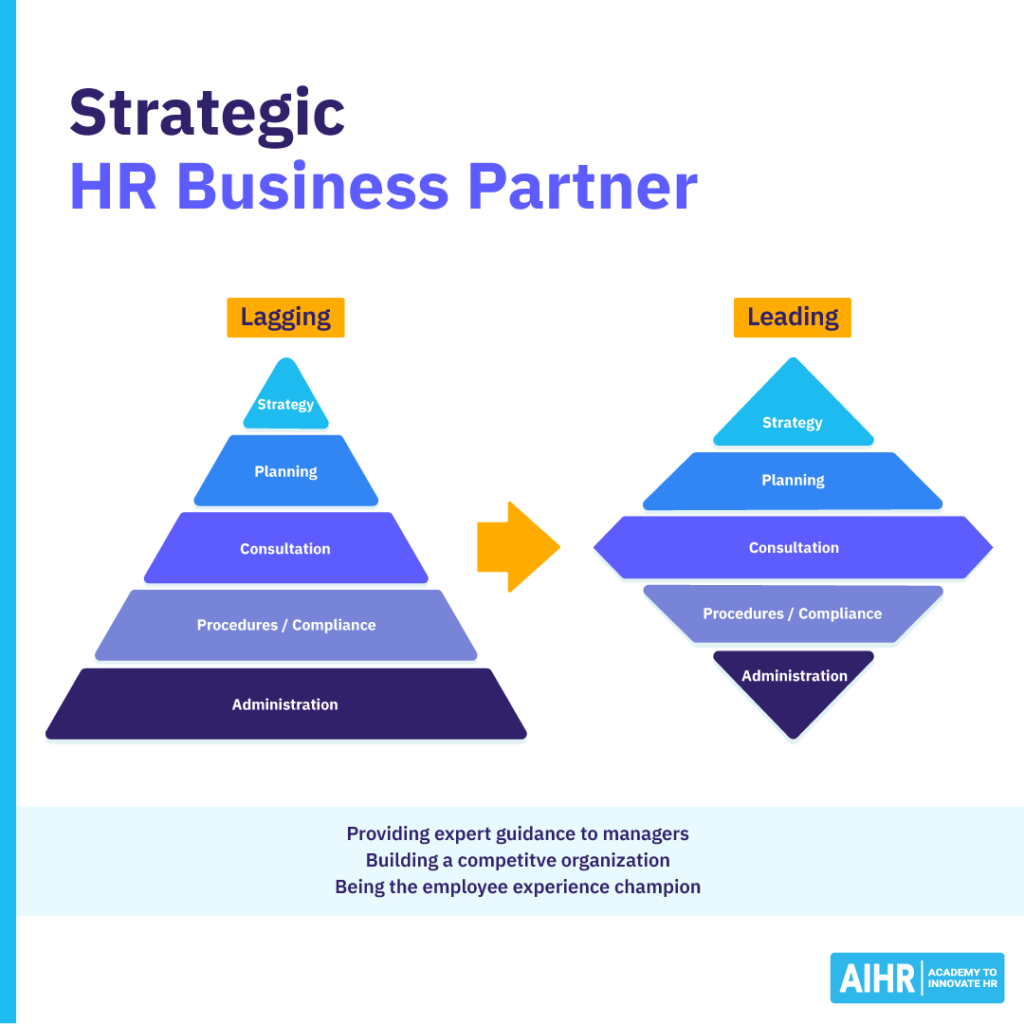
HRBP skills and qualifications
HR Business Partner skills
In this section, we take a look at some of the skills that any future-oriented HRBP needs to succeed in their role. Here are a few examples that often appear in job descriptions:
Data literacy
While an HRBP doesn’t need to become a data scientist, most companies require their HRBPs to have an understanding of data interpretation, collection, and creation. As such, an HRBP job description might include requirements for data literacy skills such as:
- Data awareness
- Applying data
- Communicating data.
Business acumen
Business acumen is about understanding finance principles, risk and reward, and business outcomes. Strong HRBPs have good HR skills and a keen understanding of the industry their business is in. For this, they need the following skills:
- Market understanding
- Commercial fluency
- Strategy creation.
Digital agility
HRBPs should be able to use technology to increase efficiency and drive business results. As such, an HRBP should have experience using HR technology (such as an HRIS) to create and implement HR strategy, apply HR management practices, and track spending. Here are some other skills linked to digital agility an HRBP may need:
- Digital adoption
- Digital championing.
People advocacy
HRBPs must be people champions who advocate for employees and push back when needed. They also need solid legal knowledge to support the workforce and business. This means HRBPs can benefit from skills such as:
- Managing change
- Culture and well-being advocacy
- Knowledge and experience with national and regional labor law, as well as tax and social security regulations.
Execution excellence
Execution Excellence for HRBPs refers to their ability to think systemically about the organization, problem-solving, and their strong drive towards action.
Given the nature of the role, interpersonal skills such as conflict management, empathy in leadership, and networking are also important, in addition to the following skills:
- Action orientation
- Problem-solving
- Interpersonal skills.
Other skills
For future HRBPs, there are various other domains expected to increase in importance, complementing the core competencies mentioned above:
- The HR value chain: A thorough understanding of the HR value chain will equip HRBPs with the knowledge they need to integrate HR policies and practices into comprehensive business-focused solutions.
- Talent attraction, development, and retention: Future HRBPs need a solid understanding of compensation and benefits, performance management, and talent management, as these areas form the foundation of an all-inclusive employee experience.
Excel as a strategic HR Business Partner
The HRBP role requires aligning HR with business objectives to drive results. From workforce planning to leadership coaching, HRBPs play a key role in shaping organizational strategy.
With AIHR’s HR Business Partner 2.0 Certificate Program, you’ll gain the skills needed to become a future-focused HRBP, mastering the strategic responsibilities that today’s organizations demand. Start building your strategic HR expertise today!
HR Business Partner qualifications
Most companies require HRBP job applicants to have a Bachelor’s or Master’s degree in a field related to Human Resources Management, organizational studies, or business management or administration. Depending on the organization’s location, workforce, and customer base, you might also need proof of proficiency in English or other relevant languages.
While an HRBP certification is not mandatory, it can provide an extra edge during the application process. There are various excellent HRBP certifications available, many of which are online and self-paced.
You can check out programs like AIHR’s HR Business Partner 2.0 certificate program, HCI’s Strategic HR Business Partner certification, or LinkedIn Learning’s HR Business Partner program.
HR business partner salary
Factors such as education, certifications, skills, years of experience, and industry can influence an HRBP’s salary.
According to Salary.com, the average annual HRBP salary in the U.S. as of August 2024 is $69,533, though the range typically lies between $63,080 and $77,045. Most HRBPs in advisory positions in the U.S. earn between $94,300 and $116,800.
Where you’re based also determines how much you’re paid. According to Payscale, a New York-based junior HRBP with one to four years experience can earn $81,220 annually, while in Houston, Texas, that figure is $69,750.
A day in the life of an HRBP
Here is a glimpse into a typical day for an HRBP. Note that the actual day-to-day tasks will vary depending on the time of the year, your availability and experience, and the type of organization and industry you are in.
Morning
Begin the workday by going through your emails and to-do list and preparing for upcoming meetings. If your team has daily stand-ups, that will probably be the first meeting you attend.
After that, you’ll meet with stakeholders or key clients, either in person or virtually. Based on the data you’ve analyzed, you’ll present a solution to improve retention for the community manager role.
You’ve found out your new hires find the onboarding process inadequate, which leads to them quitting early. Therefore, you propose more frequent meetings between new hires and their managers and peers to set expectations, build relationships, and provide feedback as part of the onboarding process.
Afternoon
In the afternoon, you have some time to work on a few items on your to-do list, followed by a meeting with the Chief HR Officer (CHRO). The aim is to align a new HR policy on paid time off that needs an update in light of the company’s recent shift to a four-day workweek.
You have another project meeting soon after, and then you spend the rest of your workday improving a product workflow.
HR Business Partner job description PDF
We have created an HR Business Partner job description PDF file you can use as inspiration or the basis for your own HRBP job descriptions. You can download it for free via the link below.
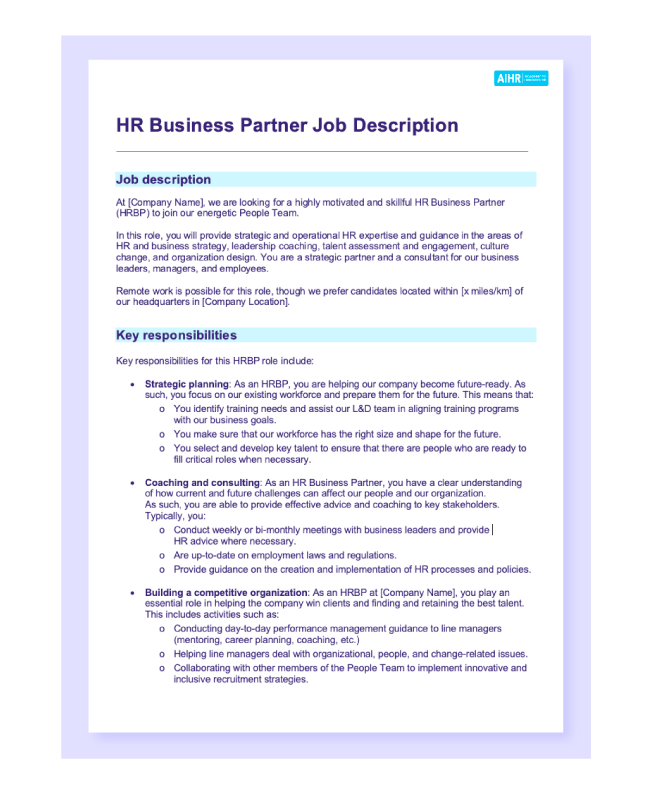
HR Generalist vs. HR Business Partner
In this section, we examine some of the differences between an HR Generalist and an HR Business Partner. One way to go about this is by looking at their responsibilities.
Primary focus
Day-to-day HR operations and employee support
Strategic alignment of HR with business objectives
Responsibilities
Recruitment, onboarding, payroll, compliance, employee relations
Workforce planning, talent management, leadership coaching, change management
Role in the organization
Often in smaller organizations or departments
Typically in larger organizations with specialized HR roles
Impact on business
Operational, ensuring HR processes run smoothly
Strategic, influencing business decisions through HR
Interaction with leadership
Limited, more focused on supporting staff
Extensive, advises leadership on HR and business alignment
Generally speaking, HR Business Partners have a more strategic focus and a broader organizational scope, while HR Generalists have an operational focus and handle day-to-day HR activities.
A final word
The role of the HR Business Partner is varied, challenging, and still evolving. Going forward, HRBPs must be ready to navigate both their organizations’ current reality and future demands. A future-oriented HRBP job description should reflect this shift so it can help (aspiring) HRBPs prepare for the recruitment process and land their dream jobs.
FAQ
The duties of an HRBP vary depending on their seniority level, industry, and company. However, they typically include coaching and consulting, applying business acumen, building a competitive organization, and empowering leaders.
An HRBP isn’t necessarily “higher” than an HR Manager, but the roles are different in focus. An HR Manager typically oversees the daily operations of the HR department, managing staff and ensuring HR policies are implemented. An HRBP, on the other hand, works more closely with senior leadership on strategic initiatives that align HR with business objectives. Both roles are important, but the HRBP is more focused on long-term strategy, while the HR Manager is more involved in managing HR processes.
The main difference between an HR Generalist and an HRBP lies in their scope and focus. An HR Generalist handles a wide range of day-to-day HR tasks, such as recruitment, onboarding, employee relations, and compliance. In contrast, an HRBP works more strategically, collaborating with senior leaders to align HR practices with business goals and driving initiatives that impact organizational performance. While both roles are important, the HRBP operates at a higher level of influence within the company.
Learn more
Related articles
Are you ready for the future of HR?
Learn modern and relevant HR skills, online

